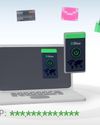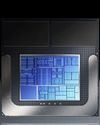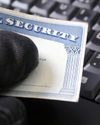The massive data breach can be an opportunity to do some cleanup and implement security recommendations.

If you had a Yahoo account in 2013, your name and password were stolen.Yahoo expanded the scope of its massive data breach (go.pcworld. com/ymdb) on Monday. In December, the Internet giant announced a hack that affected over a billion accounts, making it by far the largest data breach in history. Now, the company says that every Yahoo account in existence in 2013—more than 3 billion—was breached. The hackers walked away with password hashes that can be easily cracked.
If you’re a Yahoo user you should consider your password compromised and should take all the necessary steps to secure your account. You should follow all of Yahoo’s recommendations (go.pcworld.com/fayr), such as changing your password and watching for suspicious account activity, but here are a few more advanced tips that you should have in mind.
1. NEVER REUSE PASSWORDS
There are many secure password management solutions (go.pcworld.com/ spms) available today that work across different platforms. There’s really no excuse for not having unique, complex passwords for every single account that you own. If you do want memorable passwords for a few critical accounts use passphrases instead: sentences made up of words, numbers and even punctuation marks.
According to Yahoo, this breach happened in August 2013, at a time when the company hadn’t yet switched to the more secure bcrypt password hashing algorithm. As a result, most passwords that were stolen are in the form of MD5 hashes, which are highly vulnerable to cracking.
If you made the mistake of using your Yahoo password elsewhere and haven’t changed it yet, you should do so immediately and review the security settings of those accounts too. It’s very likely that hackers have already cracked your password and had three years to abuse it.
2. TWO-FACTOR AUTHENTICATION EVERYWHERE
この記事は PCWorld の November 2017 版に掲載されています。
7 日間の Magzter GOLD 無料トライアルを開始して、何千もの厳選されたプレミアム ストーリー、9,000 以上の雑誌や新聞にアクセスしてください。
すでに購読者です ? サインイン
この記事は PCWorld の November 2017 版に掲載されています。
7 日間の Magzter GOLD 無料トライアルを開始して、何千もの厳選されたプレミアム ストーリー、9,000 以上の雑誌や新聞にアクセスしてください。
すでに購読者です? サインイン

Private Internet Access: A low-price, high-value VPN for everyone
This veteran VPN shows it can still hang with the best.

Hands-on: Kensington's first Thunderbolt 5 dock is built for the future
Thunderbolt 5 is here...but you'll need more than just this well-built Kensington dock to take advantage of it.

Tested: Intel's Lunar Lake chip wants you to forget Qualcomm laptops exist
Great battery life, mediocre performance, surprisingly decent gaming: That is how Intel's Lunar Lake chip stacks up.

7 laptop habits that coax the most out of your battery
Don't send your laptop into an early grave.

WordPad is gone from Windows 11. Here's how to bring it back
With the arrival of Windows 11 version 24H2, WordPad is officially gone. Want to keep using it? You're in luck.

Hackers know your social security number. Here's how to stay safe
Thanks to a multitude of data leaks, your most sensitive information is now easily accessible to the world.

20 insanely useful Windows 11 keyboard shortcuts I use every day
After so many years, I'm still discovering new keyboard shortcuts.

WHAT THE HECK IS AN NPU, ANYWAY? HERE'S AN EXPLAINER ON AI CHIPS
ALL PCS WILL SOON HAVE NEURAL PROCESSING UNITS. HERE'S WHAT THAT MEANS FOR YOU IN SIMPLE TERMS.

WINDOWS 11'S 2024 UPDAATE: 5 BIG CHANGES I REALLY LIKE (AND MORE)
WINDOWS 11'S ANNUAL UPDATE IS ROLLING OUT OVER THE NEXT FEW WEEKS.

Hackers are using AI-generated code for malware attacks
Two separate attacks have been spotted using code that was probably written by artificial intelligence.